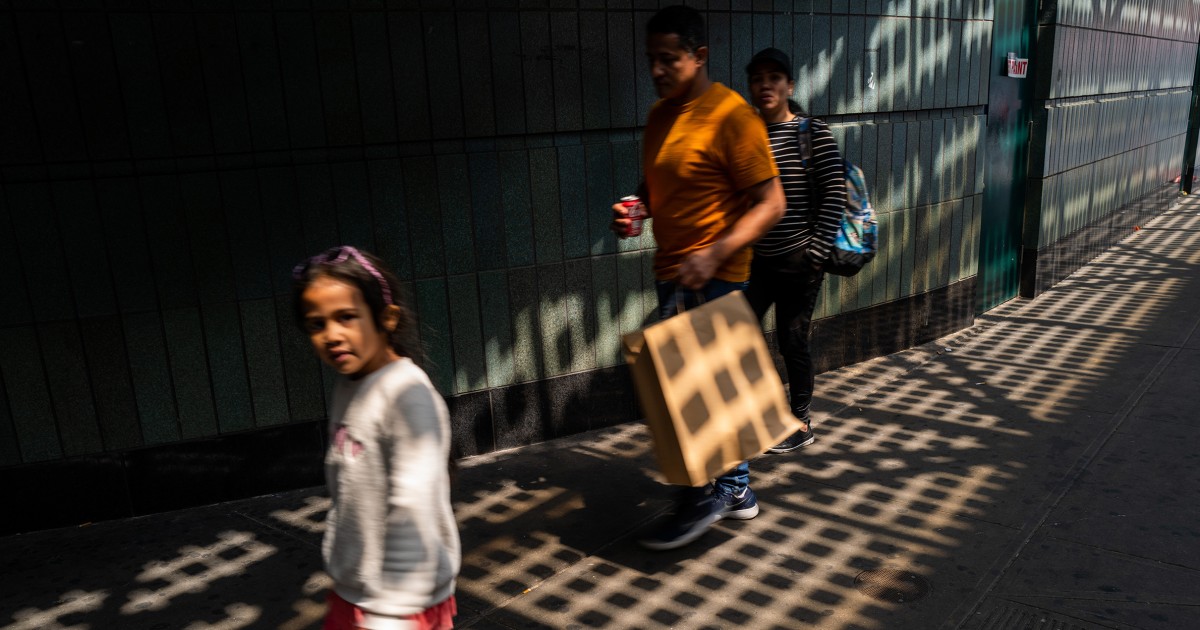By Rob Wile — NBC News
Slowdown, but not recession.
That's the general consensus among experts about the U.S. economy heading into 2024. After a post-pandemic period in which growth exceeded most forecasts but also led to skyrocketing inflation, Americans should now expect a period of lower business activity.
While some economists believe the risk of recession will persist, others consider a "soft landing" more likely. That much-talked-about scenario is understood as a combination of milder inflation coupled with slow and steady employment growth.
"There's more hope for (a soft landing) in 2024 than in 2023," said Greg McBride, chief financial analyst at Bankrate.
Many economists' forecast of a recession in 2023 did not come to pass. In fact, from a purely data-driven perspective, history can consider this year to be a good one, as low unemployment and rapidly declining inflation prevailed.
Today, unemployment rates stand at 3.7%, down from 3.5% a year ago. The annual rate of inflation, meanwhile, has fallen to 3.1%, less than half of the 7.1% recorded in November 2022.
As a result, consumer confidence has increased. In the most recent survey from the Conference Board, a nonprofit business research organization, good economic vibes among shoppers soared to the highest level since July.
Warning signs on the horizon
With additional context, each of these measures points to a slowdown on the horizon. The unemployment rate has risen from a low of 3.4% reached in April. And despite coming off the near-double-digit highs reached in June 2022, inflation has failed to fall below 3%. In fact, it has bounced in that band for six consecutive months.
In terms of consumer confidence, it remains well below the post-pandemic peak in the spring of 2021.
Gus Faucher, senior vice president and chief economist at PNC Financial Services Group, said the unemployment rate is likely to rise to around 4% as consumers cut back on spending, leading to a slowdown in job growth.
But while the risk of recession remains "elevated," it likely won't happen unless the global economy suffers a negative impact, such as a broader conflict in the Middle East, where Israel is at war with Hamas fighters in Gaza, Faucher said.
"A recession is less likely now than it was three or six months ago, simply because of the strength we've seen," Faucher added.
The economy has already slowed thanks to high interest rates, something consumers will continue to encounter in 2024, Bankrate's McBride said. The Federal Reserve has kept rates elevated in its ongoing effort to fight inflation and is not likely to reduce them anytime soon.
Right now, credit card interest rates are still over 20% on average. And while mortgages are starting to come down, the 30-year average is still hovering between 6.5% and 7%, and even higher in some regions of the fastest-growing country. Those numbers are also presented, more or less, for auto loans.
"Interest rates went up the elevator, but they're going down the stairs," McBride says. While some Fed officials have begun signaling that they would be open to cutting them next year, McBride says they would come down "at a very modest pace."
"We're going to be in a high interest rate environment for some time," he said.
Still, many consumers have weathered this environment and will continue to do so next year, experts say.
In a commentary published this week, economists at Bank of America say the "net wealth" of many Americans has grown thanks to rising home prices and a banner year for the stock market. This will continue to drive a healthy pace of purchases, they say.
"Understanding the consumer is still more of a 'look at what I do and not what I say,'" the economists wrote, suggesting that shoppers are still comfortable spending money, even if they express concerns about the economy.
Recent retail sales reports indicate that this year's holiday spending "was more favorable than many expected," while total hours worked have continued to rise.
Of course, this more favorable scenario of staying afloat financially without major hardship doesn't apply to all Americans. Economists at Bank of America point out that when it comes to how savings and housing affordability have been distributed since the pandemic, many households are far from well-off.
And Bankrate's McBride estimates that about 60% of Americans now live paycheck to paycheck.
Overall, however, "it looks like the U.S. consumer is cooling off, not backing down," Bank of America specialists say.

